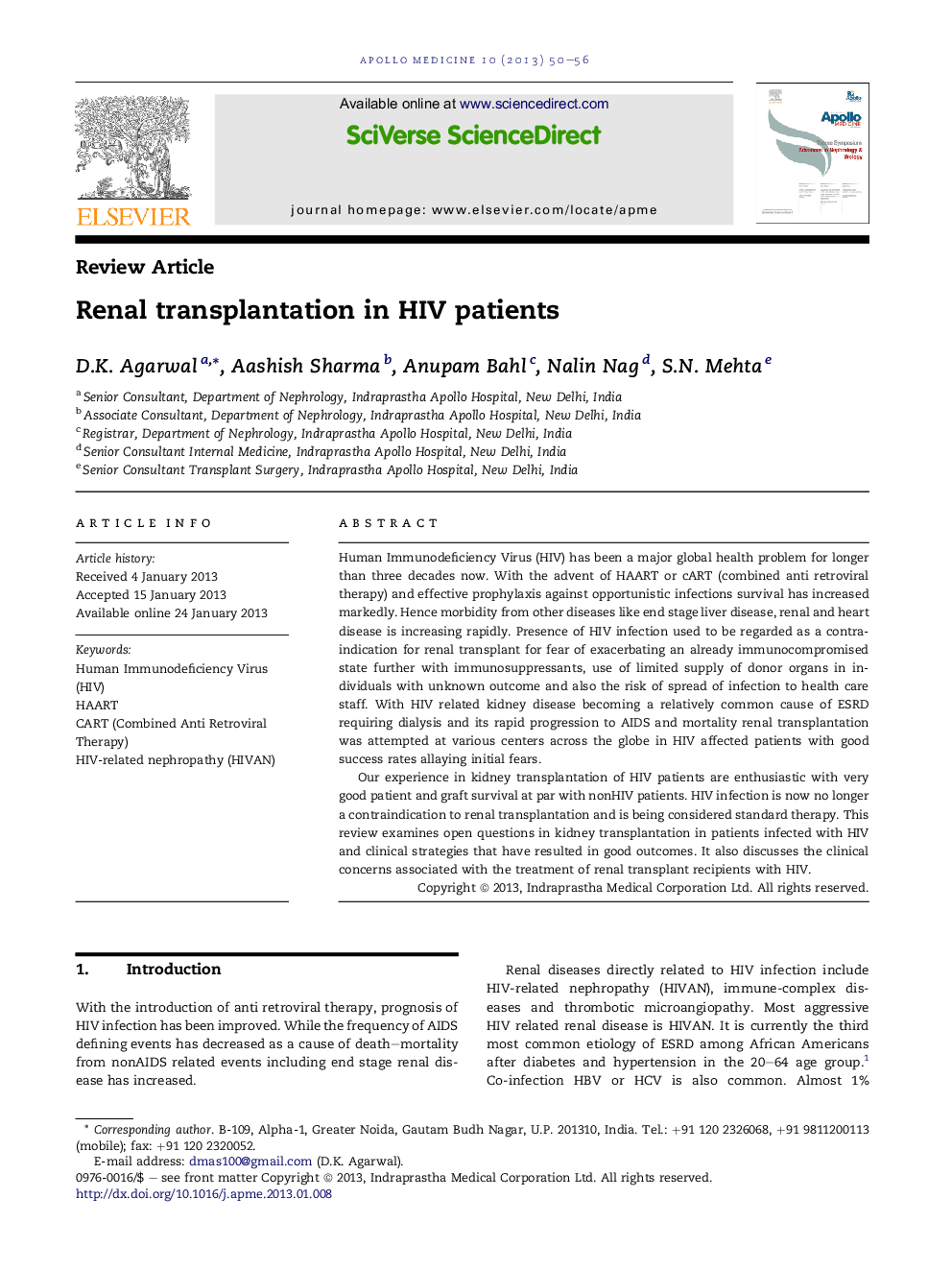| Article ID | Journal | Published Year | Pages | File Type |
|---|---|---|---|---|
| 3235104 | Apollo Medicine | 2013 | 7 Pages |
Human Immunodeficiency Virus (HIV) has been a major global health problem for longer than three decades now. With the advent of HAART or cART (combined anti retroviral therapy) and effective prophylaxis against opportunistic infections survival has increased markedly. Hence morbidity from other diseases like end stage liver disease, renal and heart disease is increasing rapidly. Presence of HIV infection used to be regarded as a contraindication for renal transplant for fear of exacerbating an already immunocompromised state further with immunosuppressants, use of limited supply of donor organs in individuals with unknown outcome and also the risk of spread of infection to health care staff. With HIV related kidney disease becoming a relatively common cause of ESRD requiring dialysis and its rapid progression to AIDS and mortality renal transplantation was attempted at various centers across the globe in HIV affected patients with good success rates allaying initial fears.Our experience in kidney transplantation of HIV patients are enthusiastic with very good patient and graft survival at par with nonHIV patients. HIV infection is now no longer a contraindication to renal transplantation and is being considered standard therapy. This review examines open questions in kidney transplantation in patients infected with HIV and clinical strategies that have resulted in good outcomes. It also discusses the clinical concerns associated with the treatment of renal transplant recipients with HIV.
